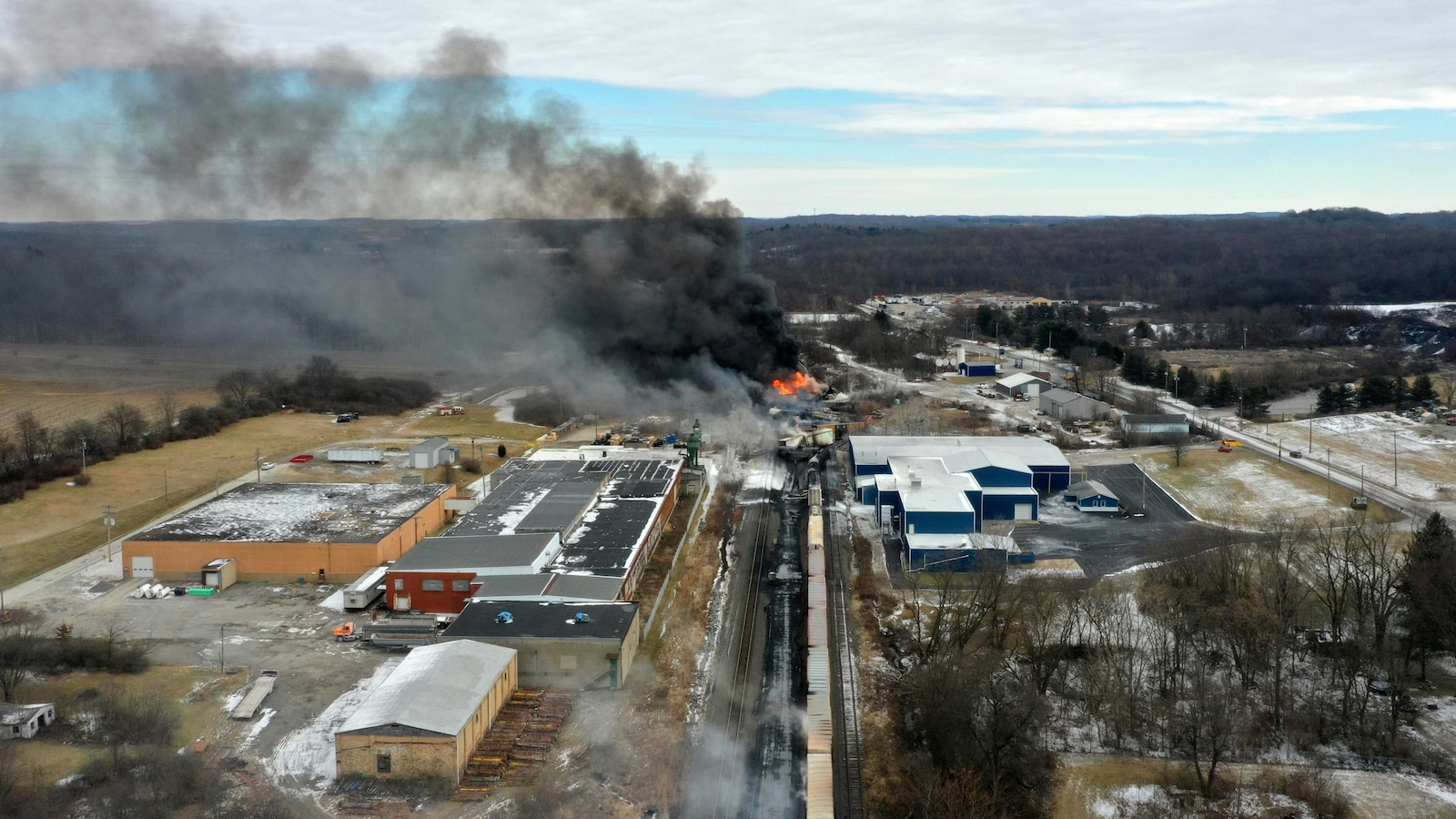Norfolk Southern’s $600 Million Settlement: A Turning Point in Rail Safety Accountability
In a historic verdict with far-reaching implications, Norfolk Southern Railway has been ordered to pay $600 million in damages for the catastrophic February 2023 derailment in East Palestine, Ohio. The federal jury’s decision marks one of the largest penalties ever imposed on a U.S. railroad operator and sets a powerful precedent for corporate accountability in transportation safety failures that endanger communities.
The Derailment That Shook a Nation
On February 3, 2023, 38 Norfolk Southern freight cars—11 carrying hazardous materials—careened off the tracks near the Ohio-Pennsylvania border. The resulting chemical fires burned for days, forcing the evacuation of thousands and releasing toxic plumes visible from space. Investigators later determined that an overheated wheel bearing, undetected by malfunctioning sensors, triggered the disaster.
Key impacts of the derailment:
- 1,500+ residents temporarily displaced
- Over 1.1 million gallons of water and 15,000 pounds of contaminated soil removed
- Local ecosystems showed chemical contamination 12 months post-incident
- Rail workers reported inadequate safety training protocols
Breaking Down the Landmark Settlement
The $600 million judgment—three times Norfolk Southern’s initial settlement offer—includes compensatory damages for affected residents, environmental remediation costs, and punitive damages. Legal experts note this exceeds typical derailment settlements by nearly 400%, signaling a shift in how courts value community and ecological harm.
“This verdict tells corporations they can’t cut corners on safety and simply write a check when disaster strikes,” said transportation attorney Rebecca Morrow. “The jury recognized that real people’s lives were permanently altered.”
Norfolk Southern’s financial disclosures reveal the company had $1.2 billion in liability insurance coverage at the time of the accident. While the settlement is substantial, analysts note it represents just 15% of the railroad’s 2023 operating revenue.
Rail Safety Under Scrutiny
The disaster exposed systemic issues in U.S. rail operations:
- Federal data shows train derailments increased 27% from 2013-2022
- Precision Scheduled Railroading (PSR) practices have reduced inspections by 40% since 2017
- Only 15% of hazardous material railcars meet current safety standards
“We’re seeing the consequences of decades of deregulation,” remarked former Federal Railroad Administration official David Clarke. “This verdict may finally force the industry to address problems they’ve long ignored.”
Industry Response and Regulatory Fallout
While Norfolk Southern called the judgment “disproportionate,” the company has since announced $200 million in new safety investments, including:
- 1,000+ new temperature sensors along high-risk routes
- Increased inspection staff by 18%
- Partnerships with first responders in 12 states
Meanwhile, Congress is advancing the Railway Safety Act of 2024, which would:
- Mandate two-person crews on hazardous material trains
- Require advanced braking systems on all tank cars
- Increase fines for safety violations tenfold
Community Impact and Long-Term Consequences
For East Palestine residents like high school teacher Mark Reynolds, the settlement brings mixed emotions: “No amount of money undoes the trauma, but at least someone’s being held accountable. We’ll be dealing with health concerns and property value losses for years.”
Environmental groups warn that full ecological recovery could take decades. Recent testing shows persistent vinyl chloride contamination in local waterways, though levels now meet EPA standards.
The Road Ahead for Rail Accountability
Legal experts predict this case will inspire similar lawsuits against other carriers. Three major class actions against Union Pacific and BNSF are already moving forward, citing the Norfolk Southern precedent.
Key questions remaining:
- Will insurers raise premiums for railroads with poor safety records?
- Can smaller communities access the legal resources needed to challenge corporations?
- Will shareholders pressure companies to prioritize safety over short-term profits?
As the transportation industry grapples with these changes, one thing is clear: the era of treating derailments as routine “cost of doing business” may be ending. For communities living alongside rail lines and workers operating the trains, this verdict offers hope for meaningful reform.
Call to Action: Concerned citizens can track rail safety legislation and report concerns through the Federal Railroad Administration’s public portal. Local advocacy groups continue monitoring environmental recovery efforts in affected regions.
See more Business Focus Insider Team

